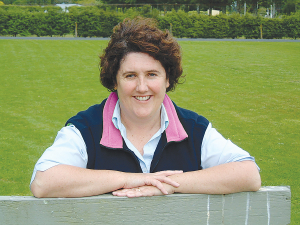DairyNZ has revised its breakeven milk price, as one way to help farmers navigate the challenging economic conditions they face this season.
DairyNZ head of economics, Mark Storey, says many dairy farmers will be finding the current milk price and inflation issues difficult to take, and how to navigate this season's reduced income will be causing real concern on many farms.
"We know dairy farmers have a difficult season ahead, in light of the reduced milk price and continuing high farm costs," says Storey.
"The breakeven milk price is one tool we have to support farmers right now, as it helps identify and forecast average costs."
DairyNZ forecasts a national breakeven of $7.51/kgMS for this season, down from $8.16/kgMS. This figure reflects the changes farmers are making now.
"The updated breakeven milk price reflects that farmers are working hard to reduce their spending in the face of extremely high costs. We know farmers are looking at budgets line-by-line and analysing where spending can be reduced, including pausing non-essential capital expenditure and carefully evaluating feed, fertiliser and other spending," says Storey.
The breakeven milk price of $7.51/kgMS is above DairyNZ's forecast revenue of $7.34/kgMS for the season, and above Fonterra's midpoint forecast of $6.75/kgMS. This means some farmers will make a loss this season, so the focus will be on maintaining business viability.
"This will also have significant flow-on effects to New Zealand's regional and national economy."
The new forecast is published on the DairyNZ Econ Tracker and expressed as a national average, which does not necessarily reflect individual farm situations. An estimation of breakeven price by region is also presented on the Econ Tracker.
"Every farm is different so we encourage farmers to look at their own situation and what changes can be made," says DairyNZ general manager of farm performance, Sarah Speight.
"Given the further drop in the Global Dairy Trade this week we are looking at 12-18 months of reduced income, so it is important to consider changes carefully."
Farmers are encouraged to talk with their farm teams, advisors and DairyNZ regional teams for support and advice.
"DairyNZ will continue working with farmers to support them to remain viable this season. This includes running events where farmers can hear from others on how they are managing costs and are focusing on farming as efficiently as possible," says Speight.
"The Econ Tracker is also a useful tool to help farmers understand the current economic environment, to support their budgeting and farm business planning."
New Zealand dairy farmers are resilient and accustomed to managing volatility, but the current combination of conditions will be difficult for many. Farmers should connect with their farm teams and neighbours and reach out for advice and support as needed, including calling Rural Support Trust on 0800 787 254.











